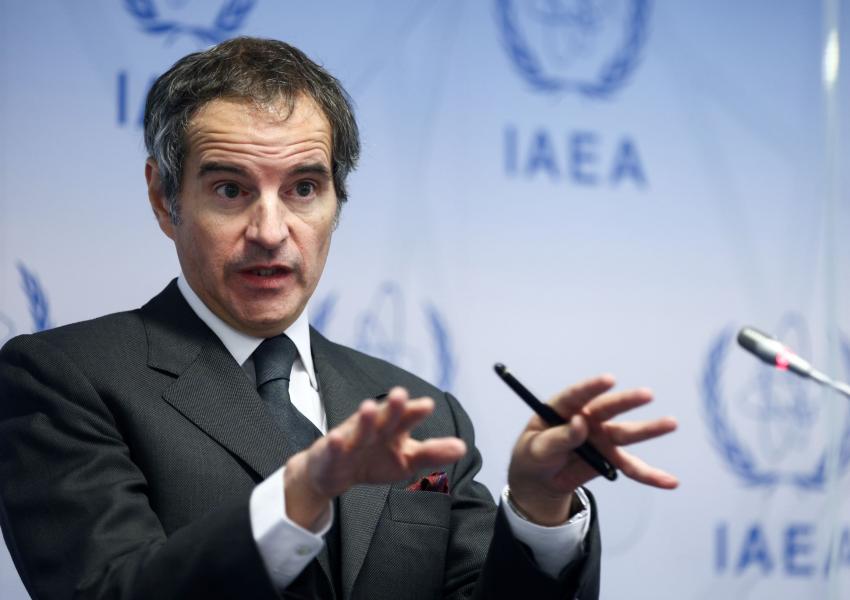
IAEA Head Calls Iran's Uranium Enrichment 'Very Concerning'
The head of the United Nations' nuclear watchdog agency has called Iran's uranium enrichment program "very concerning" in an interview with the Financial Times published on Wednesday.
Iran was enriching uranium at purity levels that "only countries making bombs are reaching", Rafael Grossi, director general of the International Atomic Energy Agency (IAEA), told the newspaper.
His comments come as Iran and global powers negotiate in Vienna to work out steps that Tehran and Washington must take on sanctions and nuclear activities to return to full compliance with its 2015 nuclear pact with world powers.
The United States withdrew from the deal in 2018, prompting Iran to steadily overstep the accord's limits on its nuclear program designed to make it harder to develop an atomic bomb - an ambition Tehran denies.
"A country enriching at 60 percent is a very serious thing — only countries making bombs are reaching this level," Grossi told the newspaper. "Sixty percent is almost weapons grade, commercial enrichment is 2, 3 (percent)."
The Joint Comprehensive Plan of Action (JCPOA), as the nuclear agreement is called, required Iran not exceed 3.67 percent uranium enrichment. Tehran first began enriching at 5 percent to force the United States to lift its sanction, then it elevated purity to 20 and eventually to 60 percent.
Ali Akbar Salehi, head of the Atomic Energy Organization of Iran told state television Monday [May 24] that Tehran will continue enriching uranium at 60 percent. He also announced that Tehran already has stockpiles of 2.5 kg highly enriched uranium, 90kg at 20 percent and 5,000kg enriched to 5 percent.
Salehi stressed that 90kg of 20%-enriched uranium had been produced in four months, with Iran speeding towards a 120kg, one-year target set by parliament.
The US is demanding that Iran should return to compliance with JCPOA before it lifts crippling sanctions imposed during the Trump administration, but Tehran wants Washington to first lift sanctions in a “verifiable” manner.
Grossi said it was Iran's "sovereign right" to develop its program but added: "This is a degree that requires a vigilant eye."
He went on to say that most measures that Iran had taken could be reversed relatively easily, but he added that the level of research and development that had taken place was an issue.
"You cannot put the genie back into the bottle — once you know how to do stuff, you know, and the only way to check this is through verification," he said.
"The Iranian program has grown, become more sophisticated so the linear return to 2015 is no longer possible. What you can do is keep their activities below the parameters of 2015."
Reporting by Reuters





